The USPA would like to support and congratulate team USA who are in the final days of training for the XI Federation of International Polo (FIP) World Polo Championship. After many days of hard work and dedication, the team is confident and prepared to represent the United States at the pinnacle of international competition for the sport of polo. The USPA encourages all members, clubs and fans of the sport to support and cheer on USA as they bring the sport of polo in the United States to a world-wide audience.
Following a decisive win over Mexico (9-7) in the XI Federation of International Polo (FIP) World Polo Championship Zone “A” Playoffs in April, USA is looking forward to competing in the XI FIP World Polo Championship at the Sydney Polo Club in Sydney, Australia, October 21-29, 2017.
Officially recognized by the International Olympic Committee, FIP is the global entity representing the sport of polo. FIP was created in 1982 to enhance the image and status of the game of polo internationally. Established in 1987, the FIP World Polo Championship, a competitive tournament from 10- to 14-goals, takes place once every three years in a different location around the world. Horses are provided by the host and pooled among participating nations to give teams equal conditions.
USA has been hard at work over the last two weeks at Grand Champions Polo Club in Wellington, Florida, preparing for the XI FIP World Polo Championship. The USPA, along with help from Team USPA and recommendations from coach Joel Baker and a selection committee have chosen an excellent lineup to represent the United States. Team USPA members Felipe Viana (5), Jesse Bray (5), Jim Wright (2), Matias Gonzalez (2) and Cacho Galindo (2) along with Carlucho Arellano (5) will look to claim the world championship title that was last won by the USA in 1989. The 14-goal team will be coached throughout the tournament by Joel Baker.
The USPA would like to thank Marc and Melissa Ganzi who have graciously provided horses, practice and tournament playing opportunities for the team as they prepare for the XI FIP World Polo Championship.
The USPA sat down with the coaches and players as they prepared to travel to Australia. Below are interviews with details on the team’s preparations for the Championship as well as a recap of what they have accomplished in training so far:
COACH JOEL BAKER
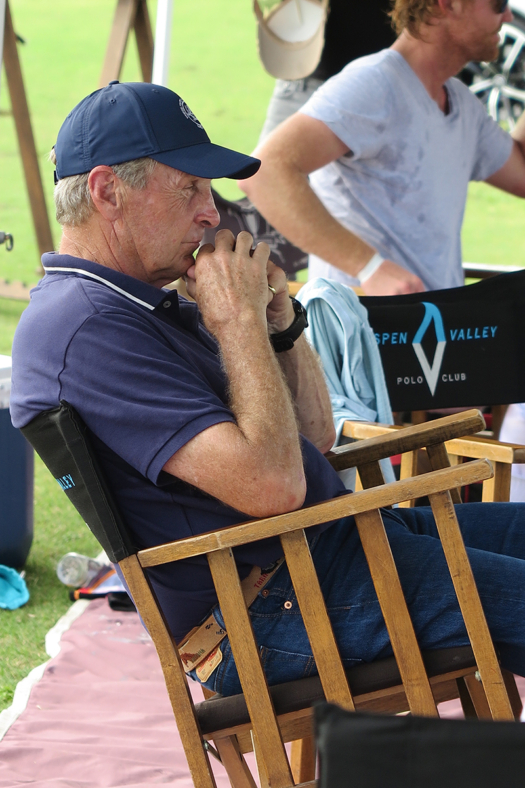
Q: How has the team been preparing and how has training been going so far?
A: “We have been playing between the raindrops, we have had a lot of rain this week. Melissa [Ganzi] has been fantastic in getting us on the fields since we have had three games and each game is getting better. Before each game we have meetings and we talk about what we want to work on. The first game was just to get the feeling of the guys playing together and take it easy. Yesterday, they worked on knock-ins and passing quickly, and today the main thing they are going to be working on is defending the knock-in as well as everything else. They are still working on getting their chemistry right, and how to read everyone. Jesse and Felipe have played together enough to where they are pretty much in sync, but our two guys at the other end are still learning what to look for. The main thing is that because we are riding strange horses against strange horses in Australia, we really want to be working on over anticipating. Not trying to out-horse a guy, but trying to out-anticipate him. That’s the main thing we are doing here. We are not worried so much about the scores, we are looking at each play and how they are winning the plays.”
Q: Who is the starting team?
A: “We don’t have starting team picked out right now. We currently have Jimmy playing back, Felipe playing three, Jesse playing two, Matias playing one, and then Cacho is playing one on the other team. We are still working on the team lineup. We will for sure have Jesse, and Felipe playing the middle and we are still working on the right combination of everyone else.”
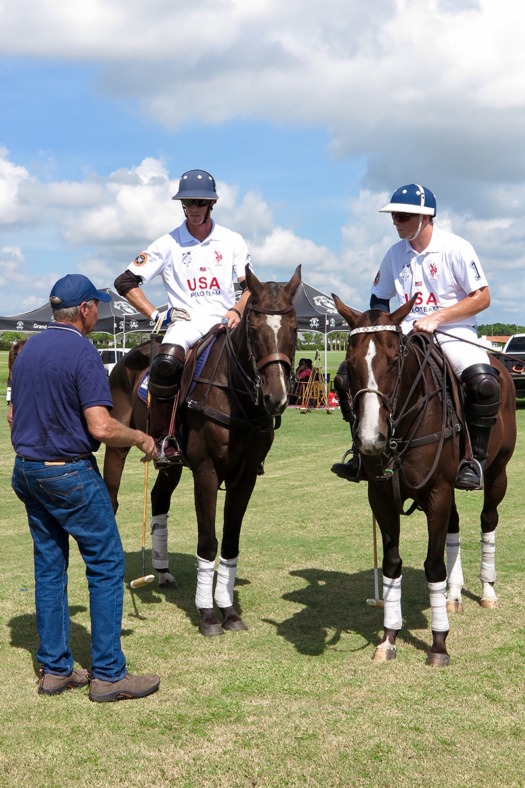
Q: Matias Gonzalez is the newest member of Team USA, how is he fitting in?
A: “Yes, Matias is the newest to the whole program. He has been working really hard to understand our language. He has done great, he is very enthusiastic and very workable. It can be tough for our 2-goal players to jump into this kind of polo, because most of the polo that they play in is 6-goal, 4-goal, every now and then 12-goal. Then when they play in higher-goal polo, they have to be the decoy or the guy that runs the ball. On our team we want them to be an equal member, we want all the guys to be playing as equals. It’s more fun, but it takes a little bit of changing how you look at the game.”
CARLUCHO ARELLANO
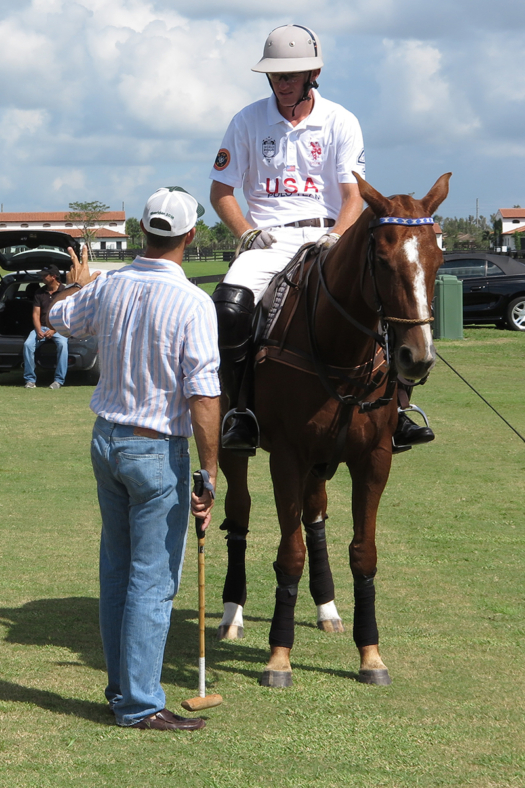
Have you competed in FIP before?
A: “Yeah. I went to the one in 1998 Santa Barbara and the one in Melbourne, Australia, in 2001.”
What advice would you have for this team since you have experience playing in FIP polo and in Australia?
A: “There are two things that I think are very important. They have to enjoy it, because it’s one of those things that goes by all too quickly. To play in an international event, to represent your country—you have to remember to live in the moment and enjoy it. Then on the whole other side of the spectrum, know that you are representing your country, and if you have ever played at the limit, that this is the time to play every minute of every chukker at your very best. So while you have to enjoy it, at the same time there needs to be that healthy pressure to do your absolute best—leave it all on the field.”
When you played those two years, what were the results?
A: “The results were, we didn’t win either one. We did well, we had games that we won and games that we lost. But just the camaraderie you build with the USA team is huge. I always did want to win and if I can go and win it as assistant coach, I think that would be really great for me right now. I’m happy to be a part of it. I think there is a lot I can bring for these kids and I feel like we have a winning team. I’ve been on these teams and I’ve seen these teams, my brother [Julio Arellano] won it in 1989 in Berlin and I went there so I’ve seen winning teams and I know what it takes.”
So what would you say are those winning qualities?
A: “There has to be this humility and I think that the guys bring it as a group. They know they aren’t going to get the best horses, they aren’t making money, they are taking time out of their professional life to go and do this and they just seem to have accepted it so well. They have this camaraderie and chemistry. It’s not that we didn’t have it when we went, it’s just our ages were so different. I think these guys are all the same age and they are into the same things. They are with each other all day long and they support each other. There is this tight-knit camaraderie that they have that I admire and envy, and I get to be part of it from a different perspective. Everybody wants to be part of a team that has that chemistry and I hope they savor that as well, because in polo you aren’t always happy to be on a team with somebody and sometimes your own teammate can be your worst enemy. This is one of those times when they all get along, they are all friends and they are so talented.”
JIM WRIGHT
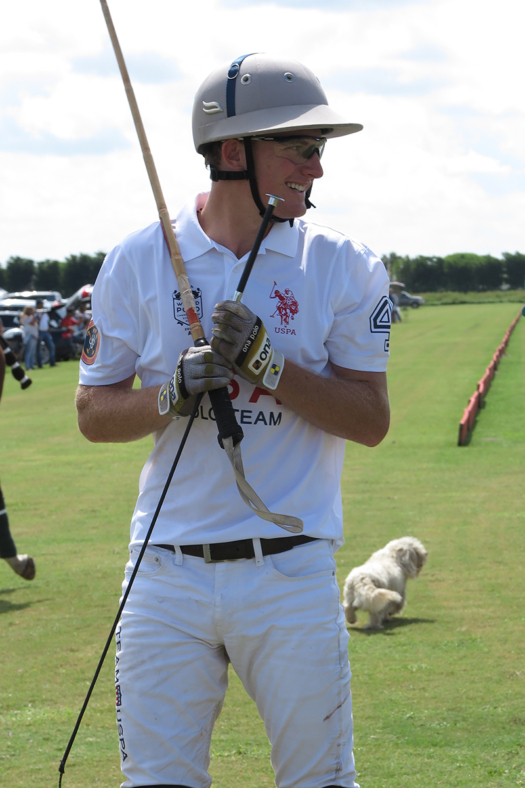
Tell us a bit about your background.
A: “I played in California my whole life, my dad is a 2-goal player and he plays in Palm Springs and then he runs a polo school in Northern California. So I grew up playing in Santa Barbara and in the desert. I worked for Adam Snow for a while in Aiken [South Carolina] so that was my first venture out of California and I played in Houston for a little bit, but primarily in California.”
What have you learned during this training?
A: “During the summer, I played at Santa Barbara and started taking up the four position. It’s not an entirely new concept, but it’s a place that I’m feeling comfortable. I am working and experimenting and trying to learn better polo to play back. I’m taking more responsibility in knock-ins and trying to be the eyes of the team, help talk and be the quarterback. I played back in 4-goal and 8-goal polo, but it’s different. It’s the not the same level of responsibility. With a four-man team when people have their head down, talking and figuring out where the options are, you need to be a lot more dynamic.”
MATIAS GONZALEZ
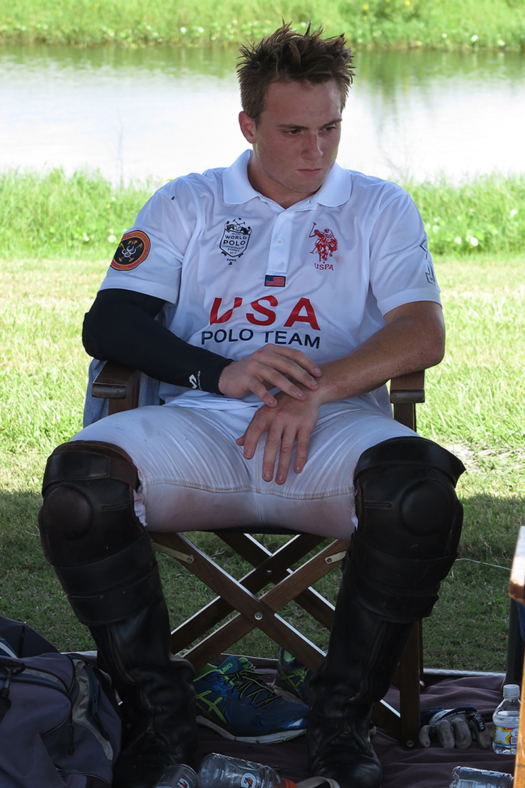
Tell us a bit about yourself since you are newest to this team.
A: “I’m from Wellington, Florida, born in Columbus, Ohio, but I consider Wellington my hometown. I started here playing Polo Training Foundation kids tournaments, and then last year I tried out for Team USPA and was accepted into the program, most recently I played in an East Coast Open game as a substitute for Bash Kazi on Hublot.”
What have you learned during this training?
A: “Mainly more communication since it’s a different kind of polo than we normally play in the states. We play this polo in Argentina, it’s four-man polo, and it’s totally different.”
What position are you playing?
A: “I’m playing number one which is usually the sponsor, but since it’s four man it’s different, it’s challenging. I have to be in position to receive the ball and be in position to go on defense. I’m always looking up to see if they have the ball and make those quick transitions.”
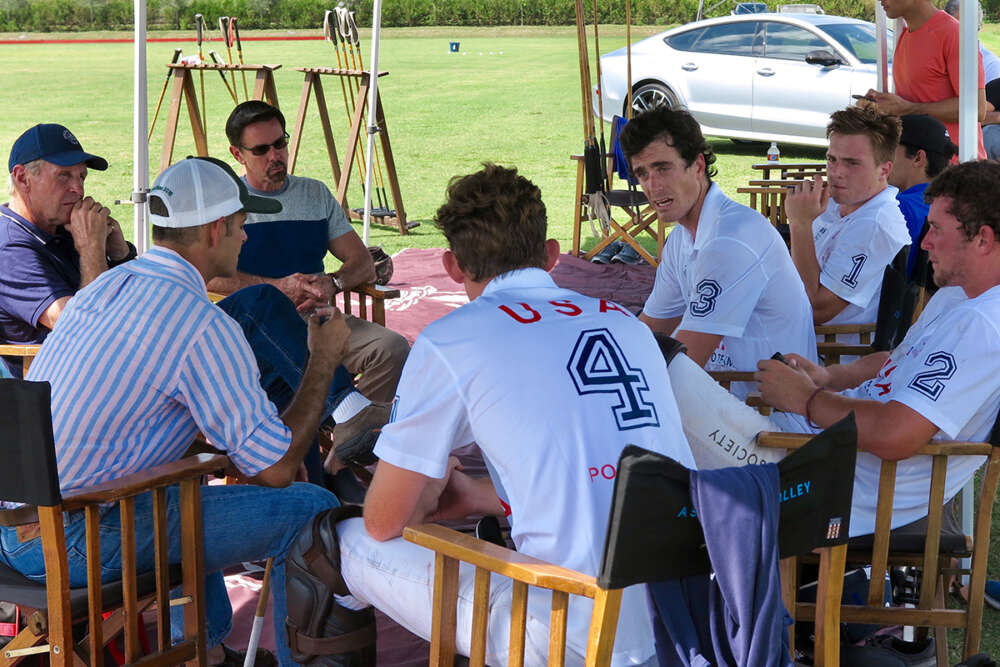
Q: Jesse and Felipe, since you both have played in FIP before, what advice would you give to your teammates that are experiencing this for the first time?
A:
Felipe: “The only team that will have some sort of advantage is the home team.”
Jesse: “Then us, you should see how much family I have coming to this thing.”
Felipe: “It is the only time in polo that things are even. The best team will be the team with the most chemistry, with the best game plan, with the best dynamics—that team will win.”
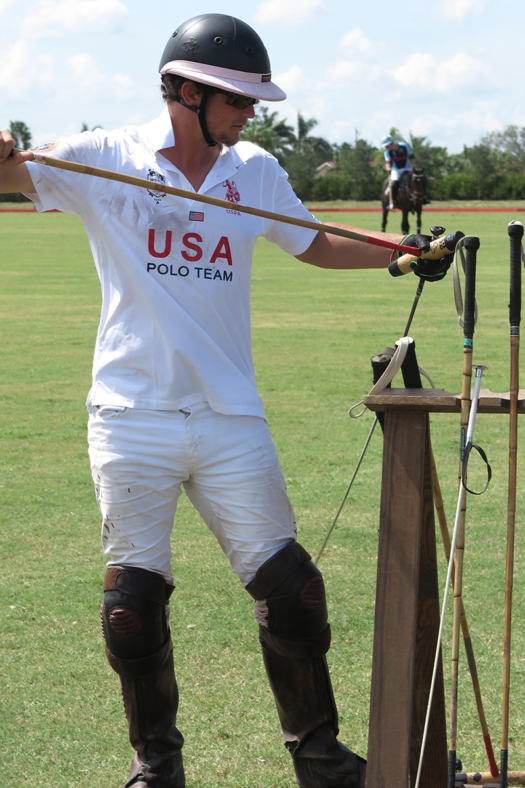
Q: Who do you think is your biggest competition?
A:
Cacho: “Chile and Argentina.”
Jesse: “I guess at this level of polo you never know, we are all 14-goals, we are all all-pro teams, so essentially, it’s anyone’s game.”
Felipe: “I think people may not realize that we could be their biggest competition. During the last World Cup, I think people thought USA was there to just fill in. No one knew what we had and how good we were, and so we were the underdogs, and I think this time it comes down to who has the best game plan.”
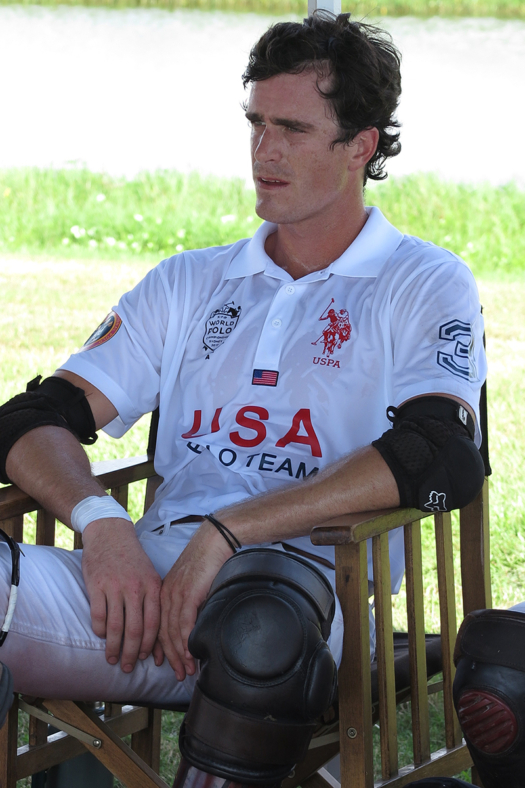
Q: Do you think the other teams come in with any specific strengths? We understand it’s anyone’s game, but Chile and Argentina, what do you think their strengths are?
A:
Jesse: “Those two countries, especially them, they are used to playing this type of polo. Four player polo, open polo. In the U.S. we don’t always play that way; we are used to playing a little differently. However, playing with these four guys who can hit well and play amazing polo, it is a huge advantage and fun for everybody here.”
Do you guys have any team rituals?
A:
Jesse: Our big thing is breakfast in the morning at Short Stacks [Wellington, Florida]. In Australia, we will find a new place. We start each day fresh with a team meeting and good food, that is one thing that has been consistent.
Q: Any funny things you have learned about each other in this time together?
A
Jim: “I bring bananas to every game.”
Cacho: “We sometimes take his bananas, he brings one for each of us, he is a real team player.”
Q: What are some other fun things you guys have been doing together outside of polo?
A:
Jesse: “I grew up with Cacho and Jimmy in California, and I met Felipe in the last World Cup so we have known each other for about six years. Matias this year, I got to know him in Florida. We can do anything and have fun. I am trying to get these guys to go go-carting.”
The USPA looks forward to covering the tournament as it progresses. USA plays Argentina in the first game of the tournament on October 21 at 10:30am local Australia time. Click here for full schedule and team rosters.
